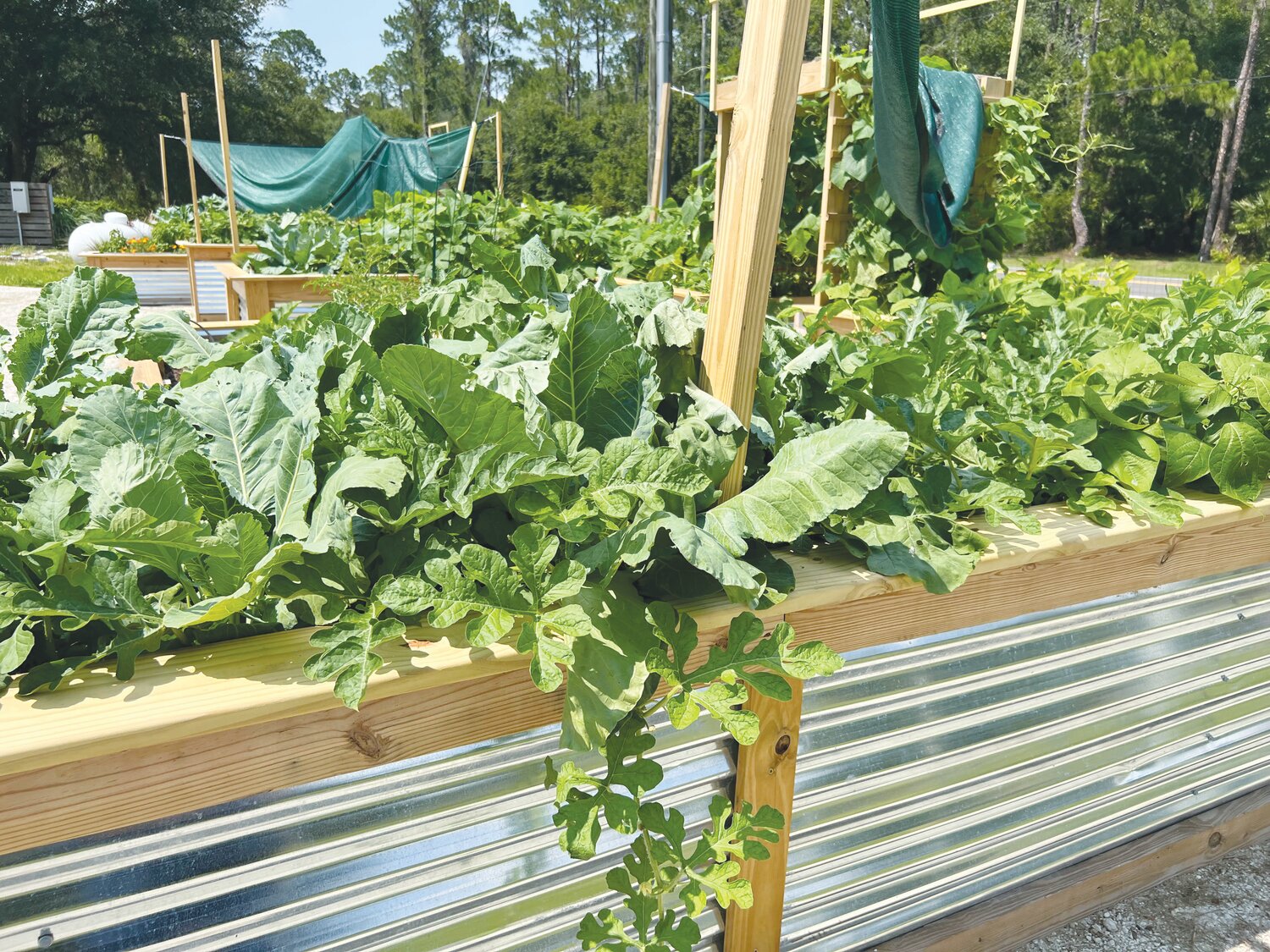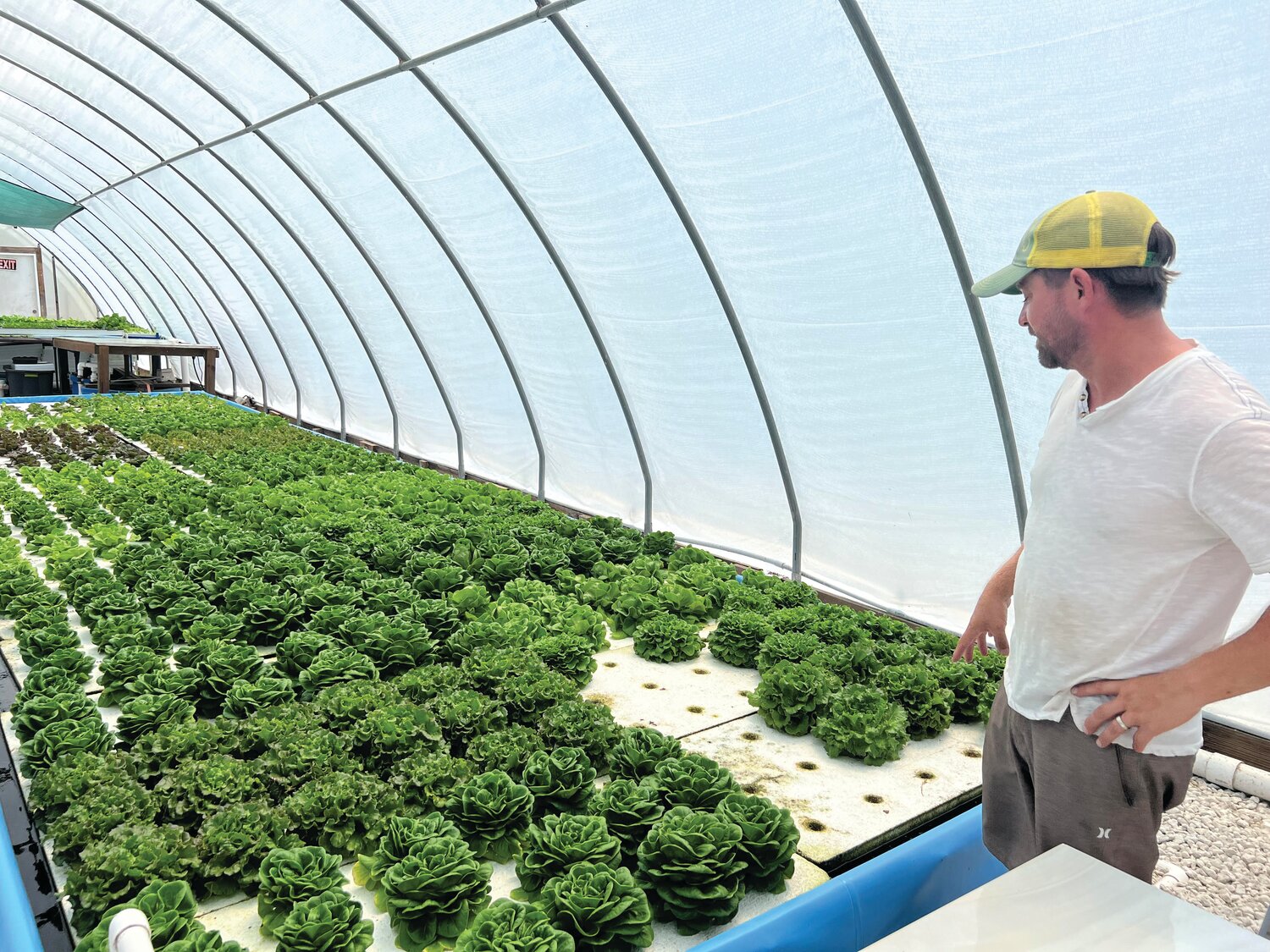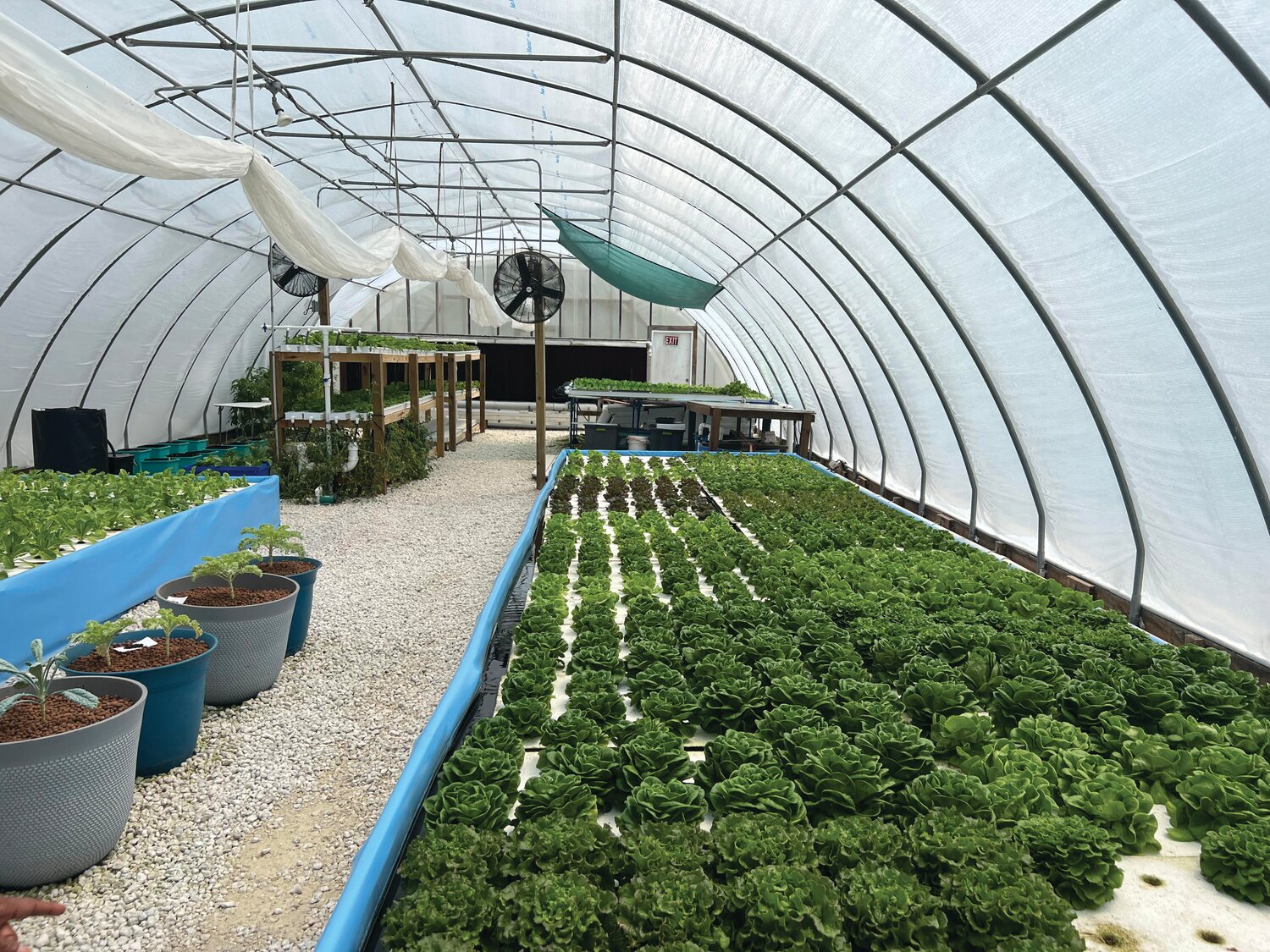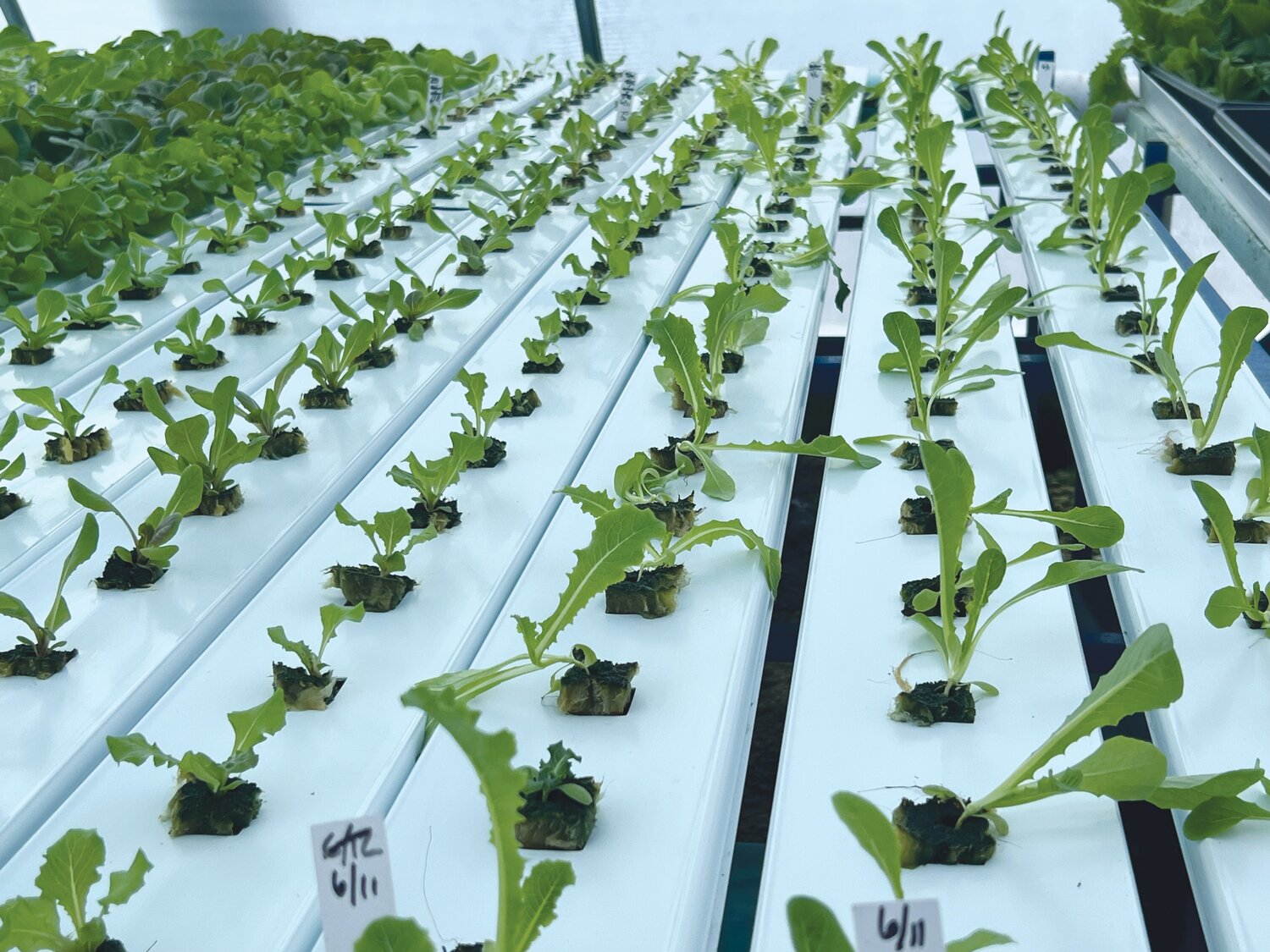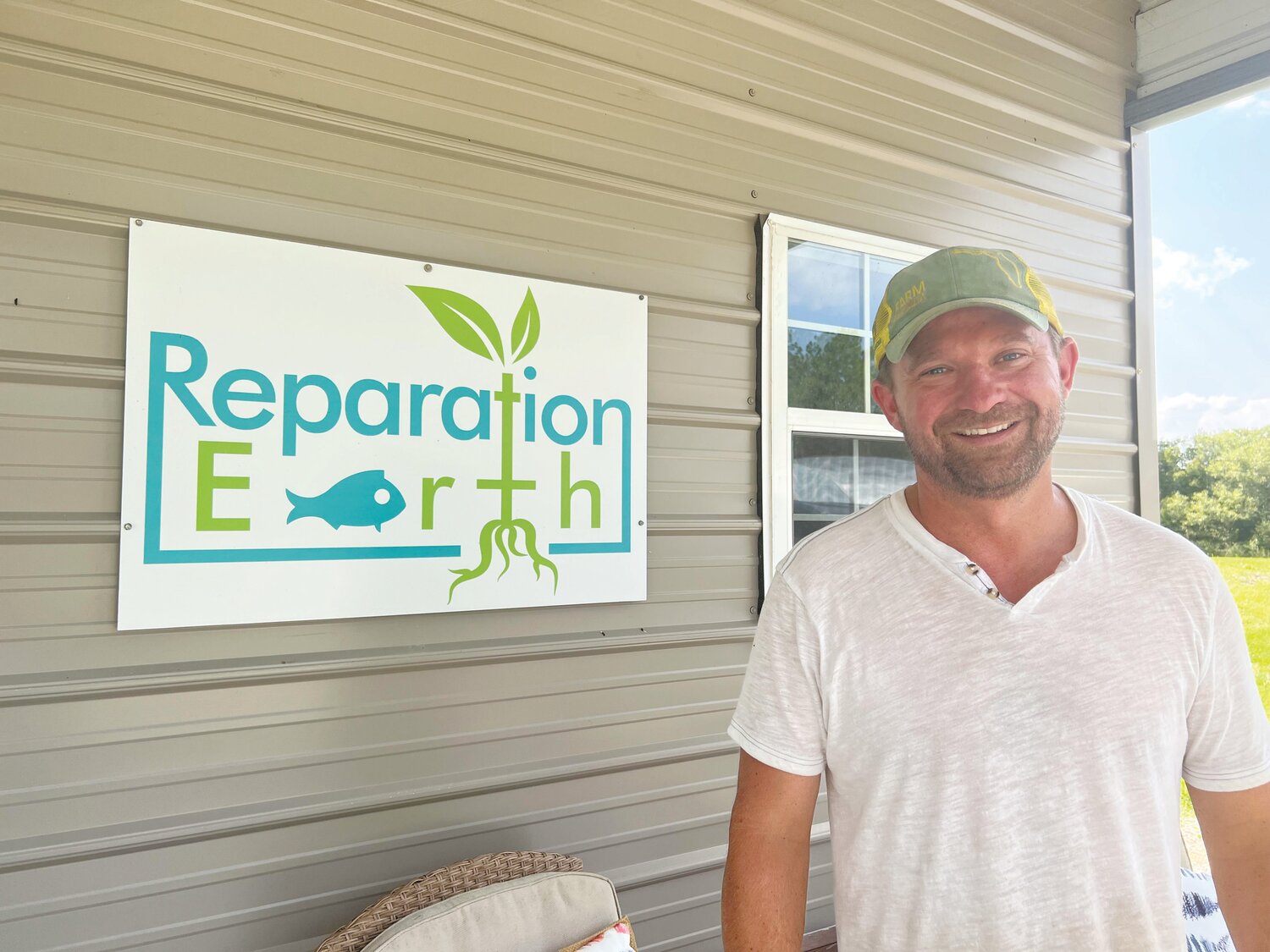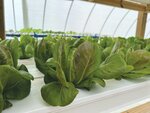Reparation Earth: Putting the ‘fresh’ back in fresh foods
GREEN COVE SPRINGS – When thinking about “natural” food, it is common to assume dirt is involved.
Dangerous pesticides and GMOs have become common when consuming farm-grown fruits and …
This item is available in full to subscribers.
Attention subscribers
To continue reading, you will need to either log in to your subscriber account, below, or purchase a new subscription.
Please log in to continueDon't have an ID?Print subscribersIf you're a print subscriber, but do not yet have an online account, click here to create one. Non-subscribersClick here to see your options for subscribing. Single day passYou also have the option of purchasing 24 hours of access, for $1.00. Click here to purchase a single day pass. |
Reparation Earth: Putting the ‘fresh’ back in fresh foods
GREEN COVE SPRINGS – When thinking about “natural” food, it is common to assume dirt is involved.
Dangerous pesticides and GMOs have become common when consuming farm-grown fruits and vegetables. But one local business is putting the “fresh” back in fresh foods.
Reparation Earth aims to get back to the “roots” of Earthly nourishment and provide all-natural, freshly grown food to customers in Northeast Florida.
“We have to do a better job of being efficient … there’s just more and more people. So, what’s a better way that we can produce food for everyone? In an all-natural way, where we’re not dependent on chemicals,” said farm owner Joe McCarthy.
The greenhouse farm uses both aquaculture and hydroponics to carry out a process that alters how food is traditionally grown. Aquaculture consists of farm-raising aquatic animals, while hydroponics consists of growing fruits and vegetables using solely water-based techniques.
This combined approach, dubbed aquaponics, allows the farm to recycle filtered wastewater produced by their farm-grown fish to supply nutrients to the above-ground plants. The wastes from the fish convert ammonia and nitrite into nitrate, feeding the plants and growing the food.
With roughly 70 fish in each 200-gallon tank, McCarthy said that by using the waste from the fish, the farm could bypass the worry of possible pathogens in the food.
“Fish are cold-blooded animals. So we don’t have to worry about warm-blooded pathogens meaning your listeria [and] E-coli. So, we don’t have those pathogens in our food,” McCarthy said.
The farm recycles its water for continued use by utilizing deep water culture and a nutrient film technique. According to Reparation Earth, one continual cycle allows crops to grow 365 days a year.
In addition to fish, the farm also raises chickens to produce fresh eggs.
Aquaponics dates back centuries, however, McCarthy said it has grown a lot more popular in recent years due to its benefits.
“It’s just become a lot bigger currently. Just because, again, you get your protein, you get your produce. So, it’s just like that self cycle, so, it’s [an] all closed environment,” McCarthy said.
The farm produces romaine, butter and leafy lettuce all year round. Their fresh herbs include basil, thyme, oregano, rosemary and lemon balm. Seasonally, the farm produces veggies such as cucumbers, kale, green beans, cherry tomatoes, squash and collards.
As extras, the farm offers frozen tilapia, frozen pesto, fresh eggs, honey and loofahs.
Produce Manager Stephanie Scarborough said she had never heard of the technique before she started working at the farm. Scarborough said the method is something essential for food production.
“Because in traditional farming, we’re using a lot of pesticides, we’re using a lot of water to water those crops. Especially here in Florida, even though we have wet seasons, we also have dry seasons. I do believe it is the future of farming and sustainability. That way, we’re not using up our resources as much and as quickly,” Scarborough said.
From feeding the fish to cleaning the water and packing the produce for sale, McCarthy’s days of farming consist of constant effort. However, his passions only make him work harder.
Growing up, McCarthy said he always had an interest in farming. Originally from Illinois, McCarthy said he had the opportunity to raise a pig and pick up rocks in fields for $10 an hour when he was younger. The experience was great for McCarthy. However, he said he can remember thinking the corporate world was his only calling.
“It’s just I was always ‘Oh, I’m going to go to college and get the tie and go off to work,’” McCarthy said.
Starting as a banker, McCarthy said his passion for being in the service-oriented industry propelled him to the forefront of change.
Officially taking severance with the bank, McCarthy faced many career options. Taking a leap of faith, he and his wife moved to Florida and dived right into the food-producing industry.
“Everything I told people not to do when I was in the bank, I did. So, really just knowing that I wanted to produce something and be part of where the food comes from,” McCarthy said.
As a child, McCarthy recalled the loads of genetically modified foods he encountered. In seeing the effects that the modifications caused, he wanted to find a safer way to grow and consume the food.
“I’d rather just grow something from all-natural, and then just know where it comes from, produce something, and then go from there,” McCarthy said.
So, he did. Reparation Earth made its home at 5968 County Road 209 in 2018 and has proudly serviced Clay County residents since.
The small farm sits on the city’s outskirts, surrounded by nothing but trees and a peaceful atmosphere. With so many frequent customers, the quaint farm has become a trustful source of fresh food in the area.
Since they first opened, the farm has partnered with local businesses such as the Elks Lodge and the Penney Retirement Community. However, just recently opening its doors to the general public back in January, the farm is working to give residents confidence in what they put in their bodies.
Now with an open market on the property, residents can order their veggies for pickup or come right to the farm for a fresh pick.
Customer Christine Klausser said she gave up buying her lettuce from the grocery store. She cited the bitter taste as the main reason for the switch to fresher options. Now Klausser said she shops at the farm to get her produce.
“I go down there probably once every two weeks or so, sometimes shorter than that. [I] get three heads of lettuce, I usually get their butter lettuce, a romaine and usually a red leaf,” Klausser said.
Customer Martha Mangus said it’s important to bring this type of farming to the local area to bring confidence to residents and their food choices. Mangus said she’s thankful the farm shares its ways with the community.
“We need to know where our food comes from. And, to make sure it’s grown ethically and responsibly. I think Joe definitely does that,” Mangus said.
Mangus added that it’s important to have the farm available for the food and the experience. Mangus compared the farm to bringing a version of EPCOT’s “Living with the Land” to the local community.
“It’s just so sustainable, and it makes sense. It’s fantastic, it makes you feel like you’re at Disney World, but even better,” Mangus said.
For the future of Reparation Earth, McCarthy has a lot in store. First up is the expansion of the farm by adding another greenhouse. Breaking ground within the next six months, McCarthy said with the new greenhouse, he hopes to add more room for growing heads of lettuce even more efficiently.
McCarthy noted during the summer, lettuce shrinks due to high temperatures. In the next greenhouse, he hopes to fix that.
“So, we’re going through those planning stages of ‘okay do we do something different, do we do this, do we do NFT throughout the whole greenhouse. A lot of people think that’s scary, but I think it’s exciting,” McCarthy said.
Reparation Earth also hopes to expand its produce options. McCarthy said the farm is looking to start growing fruit trees. Currently, the farm’s bee hive occupies the space. However, McCarthy said citrus trees would soon reside next to it.
“Our wheels are always spinning. So, we’ll see where [we] get,” McCarthy said.
For now, McCarthy said he hopes to continue building a strong relationship with the community, bringing quality food to the masses, and teaching about techniques to change how food is grown.
“I think we bring a lot to the area once we get up and running. And [I’m] kind of looking forward to just teaming up with the community and getting involved,” McCarthy said.


